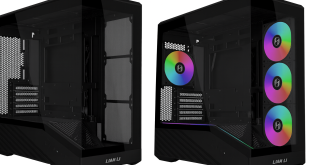Although GlobalFoundries has licensed 14nm FinFET manufacturing technology from Samsung Electronics back in May, 2014, it looks like the company may have to delay mass production using the fabrication process. According to a media report, the company has stopped installation of equipment required to make chips using 14nm FinFET technology.
“We have confirmed through numerous sources that over the last two weeks GlobalFoundries has stopped deliveries of tools for 14nm to its fab and instead is having the tools housed at a nearby warehouse,” said Robert Maire, a semiconductor equipment observer at Semiwatch, in a blog post.
Since the 14nm FinFET fabrication process used by Samsung Electronics used by GlobalFoundries is not based on GF’s 20nm technology, the company needs to install certain new tools to start making chips using the manufacturing process. Unfortunately, it does not seem that the fab 8 in Saratoga county, New York, is ready for this equipment.
“We hear that tool makers are told that the fab facilities are not ready and it sounds like a one to two quarter delay,” said Mr. Maire. “Some tool makers are speculating that the delay could also be related to financial issues or yield issues or a host of other odd rumors.”
GlobalFoundries needs to “copy exactly” Samsung’s 14nm FinFET process technology. The companies need to maximally align their equipment setups before starting mass production so that the chips produced at different fabs would be completely identical.
A number of companies have criticized Samsung’s 14nm FinFET process technology for low yields (just like many in the industry criticize TSMC’s 16nm FinFET), therefore, it may not be the right time for GlobalFoundries to install new equipment if the tools cannot be used for mass production.
If GlobalFoundries delays installation of equipment necessary to make chips using 14nm FinFET fabrication process from, for example, mid-March to mid-July, then companies like Advanced Micro Devices will not tape out their forthcoming 14nm products in time. It usually takes two to three quarters from the initial tape-out of chips to their commercial launch. As a result, a three-month delay by GlobalFoundries could mean that certain companies will have to delay mass production from early 2016 to mid-2016, a major postponement in the semiconductor world. Obviously, it is possible to tape out chips at Samsung and then produce them at GF, but given FinFET yield issues and increased demands for capacity, it may not be that easy for Samsung to run test shuttle wafers for GF’s clients.
It is interesting to note that due to low yields and high per-transistor costs of both 14nm FinFET (Samsung) and 16nm FinFET (TSMC), both foundries are boosting their spending on 10nm FinFET fabrication processes. A good news is that after absorbing IBM’s foundry business GlobalFoundries now has a lot more specialists to develop the technology. However, a bad news is that 10nm is still a couple of years away.
According to market rumours, many fabless semiconductor developers are now working on chips that will be made at TSMC, Samsung and GlobalFoundies. Previously the majority of companies used only one or two manufacturing partners. However, it looks like due to yield and cost issues fabless designers of chips will use multiple foundry partners going forward.
GlobalFoundries and Samsung did not comment on the news-story.
Discuss on our Facebook page, HERE.
KitGuru Says: While the situation with 14nm and 16nm FinFET technologies is more or less clear and business approaches of large developers of chips seem logical, it remains to be seen what effect will it have on chip and contract chip manufacturing businesses. Taping out chips at multiple fabs requires a lot of capital spending, something that many companies in the industry just cannot afford. As a result, expect mergers and acquisitions…
 KitGuru KitGuru.net – Tech News | Hardware News | Hardware Reviews | IOS | Mobile | Gaming | Graphics Cards
KitGuru KitGuru.net – Tech News | Hardware News | Hardware Reviews | IOS | Mobile | Gaming | Graphics Cards


